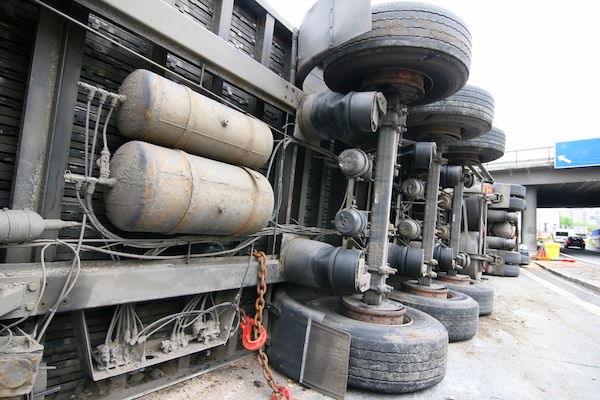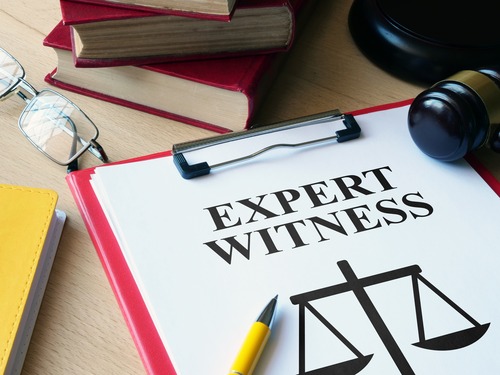At Mogy Law Firm, we are dedicated to safeguarding the rights of injury victims and individuals confronting criminal charges. Our focus is on delivering individualized attention, open communication, and steadfast representation in personal injury cases. Unlike many other firms, we charge only a 25% fee for personal injury cases, ensuring that you receive a greater portion of the compensation you’re entitled to. Whether you need a strong defense in criminal matters or are pursuing justice after an accident, our skilled legal team is committed to achieving the best possible outcome for you!
Dealing with insurance adjusters after a car accident in Tennessee can be a challenging process, but understanding your rights and responsibilities can help you navigate it more effectively. Insurance adjusters are responsible for evaluating claims, determining liability, and offering settlements, but their goal is often to minimize the payout.
In this blog, we’ll outline key steps for dealing with insurance adjusters after a car accident in Tennessee, including the importance of working with an experienced Nashville car accident attorney to protect your rights and secure fair compensation.
Understand the Role of the Insurance Adjuster
After a car accident in Tennessee, understanding the role of the insurance adjuster is important for managing your claim. The adjuster evaluates the damages to your vehicle, assesses the job duties involved in investigating the accident, and helps determine liability and how much compensation you may receive.
Insurance Adjuster Responsibilities
The main responsibility of an insurance adjuster is to assess the damages caused by the wreck. They will review the property damage to your vehicle and any injuries you sustained. The adjuster gathers evidence such as police reports, medical records, and witness statements. They also inspect the vehicle and may consult experts to determine the cost of repairs or replacement.
Adjuster’s Goal
An insurance adjuster works on behalf of the insurance company, not the claimant. Their job is to evaluate the claim and make sure the payout is in line with the insurance policy. While they must fairly assess the damages, their goal is often to minimize the amount the insurance company pays. They may attempt to offer a lower settlement to the claimant to protect the insurer’s interests.
How Compensation is Determined by the Insurance Company
The adjuster uses various factors to determine the compensation amount. They consider the severity of injuries, including minor injuries, the extent of property damage, and the costs of repairs or medical treatment. The adjuster also looks at the details in the police report and other evidence. They may offer a settlement based on their assessment of these factors.
The Claims Process
The insurance adjuster follows a specific process to evaluate the claim. First, they investigate the accident by reviewing all available evidence. Next, they assess the damages, such as vehicle repairs and medical expenses. Finally, they offer a settlement based on their evaluation. This process can take time, depending on the complexity of the claim and the extent of the damages.
Gather and Organize Key Documentation
After a car accident, gathering and organizing the right crash documentation is essential for supporting your claim. Accurate and well-maintained crash records ensure your insurance adjuster can properly assess your situation.
Police Report
A police report is one of the most important pieces of documentation for your claim. It provides an official record of the wreck, including the location, date, and details of the crash. The report will often include statements from witnesses and the police officer’s assessment of fault. Ensure you obtain a copy of the report as soon as possible, as it will be crucial to your insurance claim and any claims you may file.
Medical Records
Medical records are essential when filing a claim for injuries sustained in the accident. These documents will verify the extent of your injuries and the treatment you received. Keep track of doctor visits, hospital stays, prescriptions, and any other health-related documentation. This will help the claims adjuster assess the costs of your treatment and provide accurate compensation for medical expenses.
Vehicle Damage Estimates
In addition to access to medical records, you will need estimates for the damage to your vehicle. Insurance adjusters will use these estimates to determine the cost of repairs or replacement. Get multiple estimates from repair shops to ensure a fair assessment. If your vehicle is totaled, the adjuster will need documentation of its value before the accident.
Communication Records
Keep a record of all communication with your own insurance policy or company, including emails, letters, and phone calls. This documentation can help clarify any misunderstandings or disputes. It is also important to track all correspondence with the claims adjuster to ensure that you are following the correct procedure and meeting any deadlines.
Witness Statements
Witness statements can support your version of the events. If anyone witnessed the accident, ask them to provide a written statement or offer to speak with the claims adjuster. These testimonies can strengthen your case, especially if there are questions about who was at fault in the accident. Collecting these statements early in the process can prevent delays in your claim.
Be Prepared for the Claims Investigation Process
The claims investigation process can be detailed, so it’s important to understand what to expect and be prepared. The adjuster will gather evidence to evaluate your claim and determine the amount of compensation paid.
How Insurance Adjusters Start the Investigation Process
Once you file a claim, a public adjuster from the insurance company will start an investigation. The claims adjuster will gather all available information, such as the police report, medical records, and vehicle damage estimates. They may also contact witnesses to collect statements. The investigation will help them determine who is at fault for the accident and the extent of the damage or injuries.
Assessing Liability
One of the primary objectives of the investigation is determining liability. The adjuster will examine the evidence to decide who was responsible for the accident, especially in cases of a deadly crash. This may involve reviewing the police report, driver statements, and witness testimony. If the accident involved multiple vehicles, the adjuster will assess the role each driver played. In Tennessee, the police report can provide important insight into fault, especially if there were injuries or property damage.
Evaluating Damages
In addition to liability, the claims adjuster will evaluate the damages. This includes property damage to your vehicle, medical expenses, and any lost wages due to injuries. The claims adjuster will use estimates from repair shops and medical providers to determine the total cost. If you have a personal injury claim, the adjuster will also consider the severity of your injuries and the necessary treatments.
Potential Delays
The investigation process can take time, especially if the accident was complex or involved significant damages. If there are multiple parties or a dispute over liability, for example, the adjuster may need additional time to gather information. Be prepared for delays and stay in regular contact with your insurer to monitor the status of your claim.
Final Decision
After completing the investigation, the insurance adjuster will make a decision on your claim. They will either offer a settlement or deny the claim based on their findings. If the settlement is insufficient or unfair, you can negotiate or seek legal advice. Be sure to review the offer carefully and consult with an attorney if you feel the compensation does not adequately cover your damages.
Stay Calm and Avoid Accepting the First Settlement Offer
When dealing with an insurance claim after a car accident, it is important to stay calm and avoid accepting the first settlement offer from the insurer. The insurance company often makes an initial offer that is lower than what you deserve.
Understand the Initial Offer
The first offer you receive from the insurance company may seem appealing, but it is usually not the full amount you are entitled to. Claims adjusters typically make this offer early in the process, hoping to settle quickly. This initial settlement might not cover all of your medical expenses, lost wages, or property damage. Carefully review the offer to ensure it reflects the true extent of your damages.
Assess the Full Impact of the Accident
Before accepting any settlement, take time to fully assess the impact of the accident on your life. This includes your medical treatment, potential long-term health effects, and any time lost from work. If you have ongoing medical needs or future expenses related to the accident, the first offer may not cover these costs. Make sure the settlement accounts for all current and future damages.
Negotiate the Settlement
You have the right to negotiate with the insurance company. If the first offer is too low, counter with a higher amount that more accurately reflects your losses. Consider speaking with a personal injury attorney who can help you negotiate with the insurance company. An attorney can ensure you don’t accept an unfair offer and will advocate for a fair settlement based on your damages.
Beware of Settling Too Quickly
Accepting a quick settlement from the insurance company may seem tempting, especially if you need money for immediate expenses. However, settling too quickly can result in leaving money on the table. Once you accept a settlement, you cannot go back and ask for more. Be sure you have a clear understanding of the total impact of your accident before agreeing to any compensation offer.
Contact an Experienced Nashville Car Accident Attorney Today!
If you’ve been involved in a car accident and are feeling overwhelmed by the insurance claims process, don’t try to handle it alone. Our team at Mogy Law Firm is here to guide you every step of the way, ensuring that your rights are protected and you receive the compensation you deserve. With our experience in handling car accident claims in Tennessee, we’ll help you navigate the complexities of dealing with how insurance claims adjusters work and fight for a fair settlement from your insurance company.
Contact us at (414) 334-5472 today for a free case review!





